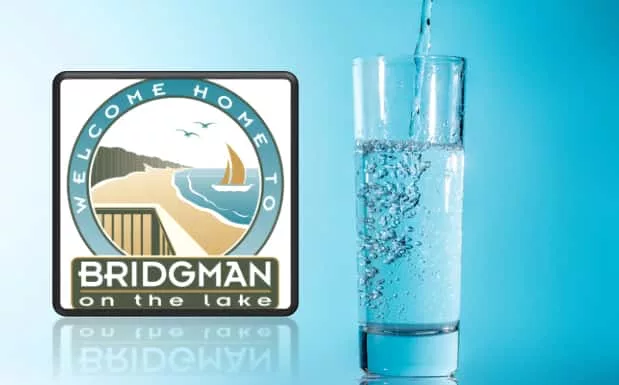If you like the water quality of the drinking water in Bridgman, you’re in good company.
The City of Bridgman is one of only four Michigan communities being recognized for 50 consecutive years of consistent fluoride levels today at the Michigan Department of Health and Human Services.
The Oral Health Unit of the Michigan Department of Health and Human Services is recognizing the public water systems of Bridgman, Fremont, Harbor Springs and Howell for maintaining a consistent level of fluoride in drinking water over the past 50 years.
The four water systems were recently awarded the 50 Year Award from Association of State and Territorial Dental Directors (ASTDD) and Centers for Disease Control and Prevention (CDC) for continuously adjusting and maintaining the amount of fluoride in drinking water for the prevention of tooth decay in adults and children.
The awards were presented prior to this week’s designation as Drinking Water Week, May 7th-13th. This observance is celebrated by the American Water Works Association/Michigan Section and other water professionals in states across the nation.
Dr. Joneigh Khaldun, Chief Medical Executive and Chief Deputy Director for Health at the Michigan Department of Health & Human Services, says, “Community water fluoridation has been recognized by CDC as one of 10 great public health achievements of the 20th Century,” and adds, “It is one of the best investments that a community can make in maintaining the oral health of its citizens.”
Fluoridation is the adjustment of fluoride in the water to a level that is optimal for preventing tooth decay. According to the CDC, drinking fluoridated water keeps teeth strong and reduces cavities (also called tooth decay) by about 25-percent in children and adults. It is estimated that every dollar invested in fluoridation saves at least $38 in costs for dental treatment.
Nationally, nearly three-quarters (74.4-percent) – or 211 million people – are served by community water systems that have access to optimally fluoridated tap water.
For more information about community water fluoridation, visit the CDC website.






